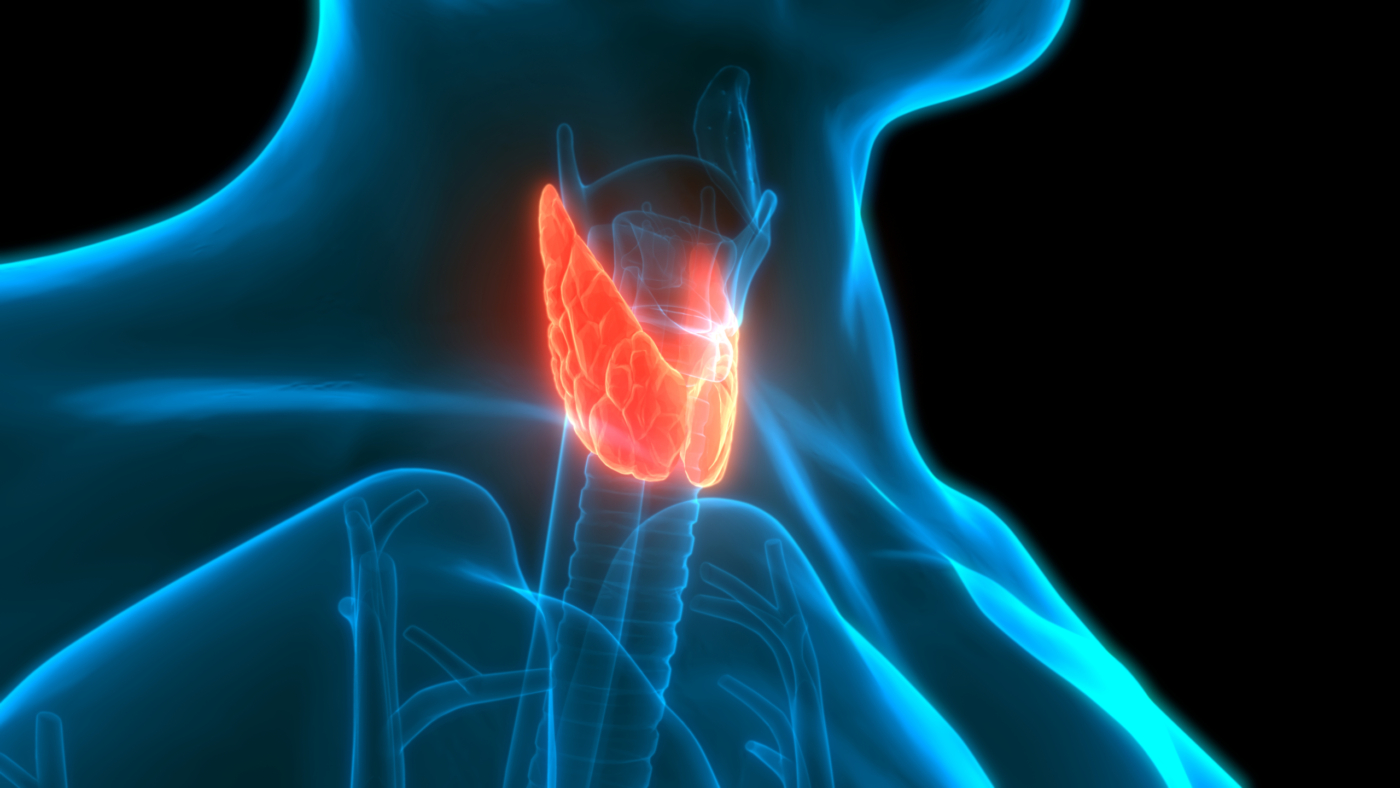The Thyroid is responsible for many important body functions including growth, cell repair, and metabolism to name a few. It’s a small gland located at the base of the neck responsible for secreting several hormones known as thyroid hormones.
When too much or too little of these hormones are produced, it causes something called thyroid disease which causes symptoms such as fatigue, unexplained weight loss or weight gain, and temperature sensitivity.
The Two Main Types of Thyroid Disease

When the thyroid gland becomes overactive and produces too much thyroid hormone, the body’s metabolism is kicked into overdrive causing what’s known as hyperthyroidism. Some of the more common symptoms often include weight loss, nervousness, elevated heart rate, brittle hair, irregular heartbeat, and difficulty sleeping.
Hyperthyroidism affects about 1% of Americans over the age of 12, but is most common in women over the age of 60. There are a few things that can make a person at higher risk for developing the thyroid disease hypothyroidism such as:
- a family history of thyroid disease
- consuming elevated amounts of iodine
- using products that contain nicotine such as cigarettes and tobacco
- other health problems, including:
- pernicious anemia, a condition caused by a vitamin B12 deficiency
- type 1 or type 2 diabetes
- primary adrenal insufficiency

The second main type of thyroid disease is the exact opposite of what we laid out earlier, which is the underproduction of thyroid hormones. This disease is fairly common and known as hypothyroidism. Dr. Mark Stengler, NMD MS says, “Common symptoms of hypothyroidism include fatigue, weight gain, dry skin, hair loss, constipation, intolerance to cold, and poor memory.”
Hypothyroidism can affect anyone at any age, but it is most common among post-menopausal women. A dominant cause of hypothyroidism is an autoimmune condition called Hashimoto’s disease. Also referred to as Hashimoto’s thyroiditis or chronic lymphocytic thyroiditis, this condition is hereditary (passed down through a family).
In Hashimoto’s disease, the body’s immune system attacks and damages the thyroid, preventing the thyroid from making and releasing enough thyroid hormone.
Other symptoms can slowly begin to develop over time, some taking years to manifest themselves. These can include:
- numbness and tingling in your hands
- soreness throughout your body including muscle weakness
- higher than normal blood cholesterol levels
- depression
- decrease in libido
- physical changes in your face like drooping or puffiness
- brain fog
How Does Eating Impact The Thyroid?
An important nutrient that helps the thyroid function properly is Selenium. It helps defend the thyroid against oxidative damage and plays an essential role in the production of thyroid hormones.
According to a study published in The Journal of Clinical Endocrinology & Metabolism, 6152 participants were selected and underwent physical and thyroid ultrasound examinations. The results showed that thyroid conditions (hypothyroidism, subclinical hypothyroidism, autoimmune thyroiditis, and enlarged thyroid) were significantly lower in the participants with adequate-selenium amounts than those with low-selenium amounts (18.0% vs 30.5%)
Other important thyroid-supporting nutrients include:
- Zinc – which has been shown to help “activate” thyroid hormones and may help the body regulate TSH, the hormone that tells the thyroid gland to release thyroid hormones.
- Ashwagandha – A double-blind placebo-controlled study that examined the effects of 600 mg of ashwagandha on hypothyroid patients found that the herb was beneficial in restoring the levels of thyroid hormones
Of course, eating a clean healthy diet helps provide the body with many of the essential nutrients it needs to function properly, however, our modern diets don’t always enable us to consume the appropriate nutrients we need to thrive.
†Selected References

